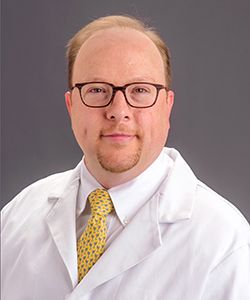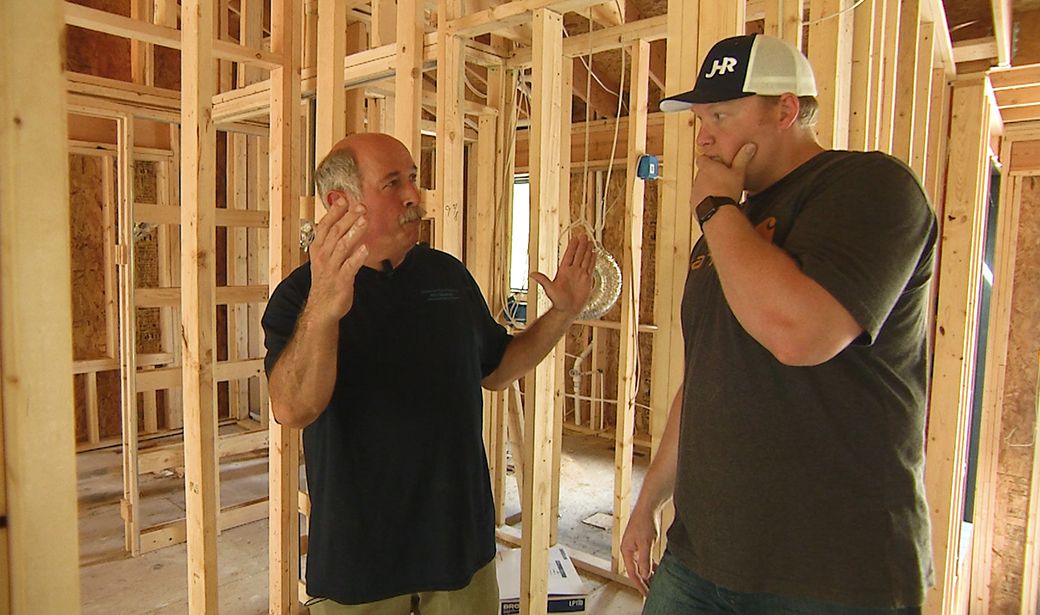Kalen Stieferman’s life can be summed up in three words: family, faith, flooring.
As the owner of his own hardwood flooring installation and restoration business, Stieferman relies on his communication skills.
“My job isn’t just performing the work or estimating cost and timing,” said Stieferman, a resident of Centertown, Missouri. “It’s really educating the customers as to what’s going to happen, what they can expect and what I can do for them.”
Stieferman’s gift of gab comes in handy at work, and it also serves him well in his other passionate pursuit — sharing his faith with others.
“I engage in public ministry, offering Bible education in people’s homes through the Kingdom Hall of Jehovah’s Witnesses.”
Three years ago, Stieferman’s faith was put to the test when a health scare threatened his livelihood and quality of life. He was diagnosed with a cyst on his thyroid gland. During surgery to remove the cyst he suffered nerve damage that changed his voice and was later referred to University of Missouri Health Care.
“At first I thought this was no big deal,” Stieferman said. “It’s kind of like having a sore throat or laryngitis. But as soon as I would talk, people would back up. I’d have to say I’m not sick, because that’s how it sounded. Or people thought I had cancer. Over time, it became very depressing.”
At work, Stieferman’s wife and daughter started doing the talking with potential customers. The vocal problems also took a personal toll as he had to step back from his church outreach and social events.
“I began to withdraw into myself because I knew people couldn’t understand what I was saying,” Stieferman said. “After two years, my wife and I knew we had to do something about it.”
Stieferman sought help from MU Health Care otolaryngologist Laura Dooley, MD. Dooley diagnosed Stieferman with nerve damage that affected one of the vocal folds in his larynx. She referred him to Mark Gilbert, MD, the only fellowship-trained laryngologist in mid-Missouri and one of only three in the state.
Gilbert arrived in Columbia from Nashville, Tennessee, where he trained at Vanderbilt University Medical Center, a top destination for singers dealing with vocal problems. He had treated problems similar to Stieferman’s.

“Imagine if you have room with double doors and you want to close them, but one side is stuck open,” Gilbert said. “That is what happened to Kalen. He couldn’t close one of his vocal folds, so the two folds couldn’t get into a position to touch and make sounds. We needed to force the nerve-damaged one closed, even if that meant it would remain closed permanently.”
Gilbert operated on Stieferman in May 2019. He closed the damaged vocal fold by holding it in place with a custom-carved implant. During the procedure, Stieferman was awake so Gilbert could manipulate the implant location while Stieferman talked.
“Kalen’s case was actually quite remarkable,” Gilbert said. “During the surgery, I tested the implant location, and suddenly his weak voice transformed into this booming bass that he hadn’t heard in two years. We didn’t have a recording of his prior voice, so I asked him if that was his normal voice. When he said yes, I knew that’s where the implant needed to be.”
Stieferman couldn’t contain his joy at the result.
“After the operation, I was driving everybody crazy in the recovery room,” he said. “I couldn’t stop talking. I was very emotional. It was like my whole world was instantly given back to me.”
While Stieferman now has his old voice back, there are some changes to the way he uses it. He’s not able to yell or sing, and the permanently closed vocal fold in his larynx means his airway is slightly smaller than it was before surgery. But Stieferman admits he was never much of a singer anyway. He’s just happy to be able to communicate with customers and his congregation.
“On the follow-up visit, I told Dr. Gilbert that he saved my life,” Stieferman said. “The quality and enjoyment was gone, but he brought it back.”



